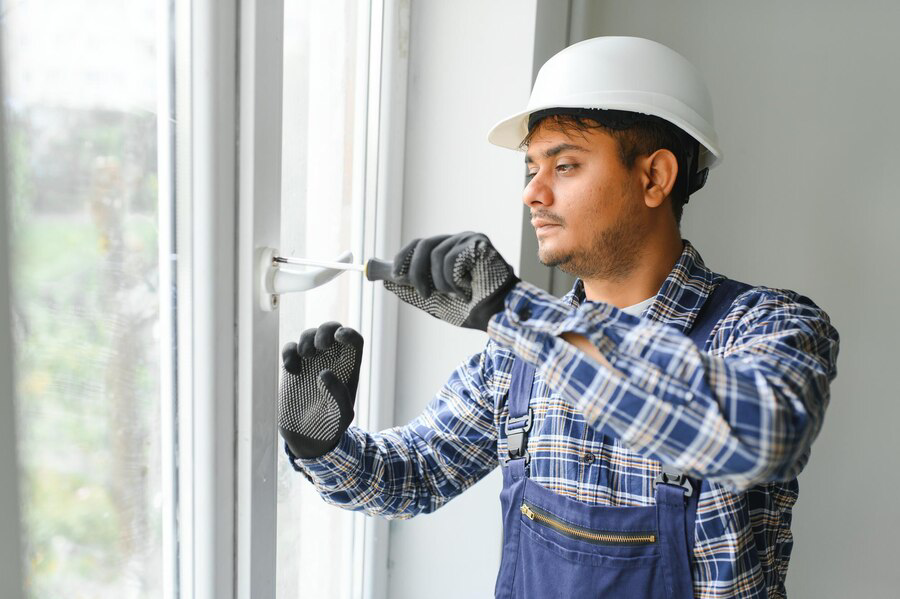
How Replacement Windows Enhance Energy Efficiency
In an era where sustainability is paramount, the quest for energy-efficient solutions has become increasingly pressing. One often overlooked yet highly effective method to enhance energy efficiency in homes is through the installation of replacement windows. These modern marvels not only elevate the aesthetic appeal of your abode but also offer a host of benefits that contribute to a greener, more cost-effective lifestyle. Replacement windows are engineered with advanced materials and technologies designed to minimize energy loss. By providing superior insulation, these windows create a thermal barrier between the interior and exterior environments, reducing the need for excessive heating or cooling. This not only translates to lower utility bills but also diminishes the carbon footprint associated with energy consumption. In this exploration of how replacement windows enhance energy efficiency, we delve into the various mechanisms and features that make them a sustainable choice for conscientious homeowners.
Understanding the Science: How Replacement Windows Boost Energy Efficiency
Replacing windows might not seem like the most thrilling home improvement project, but when it comes to energy efficiency, it’s one of the smartest investments a homeowner can make. Understanding how replacement windows work to enhance energy efficiency can shed light on their importance and justify the decision to upgrade. In this blog post, we’ll delve into the science behind replacement windows and explore how they contribute to a more energy-efficient home.
The Role of Insulation
One of the key ways replacement windows boost energy efficiency is through improved insulation. Traditional single-pane windows often allow heat to transfer easily between the interior and exterior of a home, leading to energy loss and increased heating and cooling costs. Replacement windows, on the other hand, feature advanced insulation materials such as double or triple-pane glass, inert gas fills, and low-emissivity coatings. These components work together to create a thermal barrier that reduces heat transfer, keeping your home more comfortable year-round while minimizing energy consumption.
Preventing Air Leakage
Another factor that can significantly impact energy efficiency is air leakage. Drafty windows allow cold or hot air from outside to infiltrate your home, forcing your HVAC system to work harder to maintain a consistent indoor temperature. Replacement windows are engineered with tight seals and precision installation techniques to minimize air leakage, effectively sealing your home from outdoor elements and reducing energy waste.
Solar Heat Gain
While natural sunlight is desirable for brightening your living spaces, excessive solar heat gain can lead to uncomfortable indoor temperatures and increased cooling costs, especially during the warmer months. Replacement windows with low-emissivity (Low-E) coatings are designed to mitigate solar heat gain by reflecting infrared light while allowing visible light to pass through. This helps regulate indoor temperatures, reducing the need for air conditioning and enhancing overall energy efficiency.

Energy Ratings and Certification
To ensure the energy efficiency of replacement windows, it’s essential to look for products that are ENERGY STAR certified and meet specific performance criteria. ENERGY STAR-rated windows have been independently tested and verified to meet stringent standards for thermal performance, air leakage, and solar heat gain. By choosing ENERGY STAR-certified replacement windows, homeowners can feel confident that they are investing in high-quality, energy-efficient products that will deliver long-term savings on utility bills.
Frame Materials and Thermal Performance
In addition to glass options, the choice of frame material also plays a significant role in the energy efficiency of replacement windows. Materials such as vinyl, fiberglass, and wood composites offer superior thermal performance compared to traditional aluminum frames, which are prone to conducting heat and cold. By selecting windows with insulating frame materials, homeowners can further enhance the energy efficiency of their homes and reduce heat transfer through window frames.
Transform Your Home: The Impact of Replacement Windows on Energy Efficiency
Your home is more than just a place to live—it’s an investment in comfort, security, and sustainability. When it comes to improving energy efficiency, few upgrades have as profound an impact as replacement windows. From reducing utility bills to enhancing indoor comfort, the benefits of upgrading to energy-efficient windows are numerous and far-reaching. In this blog post, we’ll explore the transformative effect that replacement windows can have on your home’s energy efficiency and overall quality of life.
Enhanced Insulation for Year-Round Comfort
Replacement windows are engineered with advanced insulation materials and technologies that help regulate indoor temperatures and reduce heat transfer. Whether it’s scorching summer heat or bitter winter cold, energy-efficient windows act as a barrier against outdoor elements, keeping your home more comfortable year-round. By minimizing drafts and maintaining consistent indoor temperatures, replacement windows create a more enjoyable living environment for you and your family.
Lower Utility Bills and Long-Term Savings
One of the most tangible benefits of upgrading to energy-efficient replacement windows is the significant reduction in utility bills. By minimizing heat loss in the winter and heat gain in the summer, these windows help optimize your home’s energy performance, resulting in lower heating and cooling costs. Over time, the savings on utility bills can offset the initial investment in replacement windows, making them a cost-effective solution for homeowners looking to improve energy efficiency.
Reduced Environmental Impact
In addition to saving money, energy-efficient replacement windows also contribute to a greener, more sustainable lifestyle. By reducing energy consumption, these windows help lower carbon emissions and minimize the environmental impact of residential energy use. As individuals and communities increasingly prioritize sustainability, upgrading to energy-efficient windows is a meaningful way to reduce your carbon footprint and support a healthier planet for future generations.
Enhanced Indoor Comfort and Quality of Life
Beyond the financial and environmental benefits, replacement windows also improve the overall comfort and quality of life in your home. By minimizing drafts, controlling solar heat gain, and reducing noise transmission from the outdoors, energy-efficient windows create a quieter, more tranquil living environment. This enhanced comfort allows you to fully enjoy your home’s interior spaces, whether you’re relaxing with family, working from home, or entertaining guests.
Protection of Interior Furnishings and Décor
Another often overlooked benefit of energy-efficient replacement windows is their ability to protect your interior furnishings and décor from sun damage. UV radiation from sunlight can cause fading and deterioration of furniture, flooring, and artwork over time. By filtering out harmful UV rays, energy-efficient windows help preserve the beauty and integrity of your home’s interior, prolonging the life of your investments and reducing the need for costly replacements or repairs.
A Greener Tomorrow: The Environmental Impact of Energy-Efficient Replacement Windows
Introduction: In our quest for a sustainable future, every decision we make regarding our homes plays a crucial role. Energy-efficient replacement windows offer a significant opportunity to reduce our environmental footprint while enhancing comfort and savings. Let’s explore the key ways these windows contribute to a greener tomorrow.
- Reduced Energy Consumption: Energy-efficient replacement windows minimize heat transfer, reducing the need for heating and cooling. This leads to lower energy consumption and decreased greenhouse gas emissions.
- Resource Conservation: By conserving energy, these windows help reduce our reliance on fossil fuels and other finite resources, promoting environmental sustainability.
- Lower Carbon Footprint: The use of energy-efficient windows contributes to a reduction in carbon emissions, helping combat climate change and protect the planet for future generations.
- Preservation of Natural Resources: By minimizing energy waste, energy-efficient windows help preserve natural resources such as coal, oil, and natural gas, which are vital for maintaining ecological balance.
Conclusion
Replacement windows offer a multitude of benefits, with energy efficiency being one of the most significant. By investing in energy-efficient replacement windows, homeowners can enjoy lower energy bills, increased comfort, and a reduced carbon footprint. These windows are designed to minimize heat transfer, keeping your home cooler in the summer and warmer in the winter, ultimately leading to significant energy savings over time.
If you’re ready to enhance the energy efficiency of your home with high-quality replacement windows, look no further than EZ Window Solutions of Strongsville. Our team is dedicated to providing top-notch window solutions tailored to your specific needs. Contact us today at +14402303838 to schedule a consultation and take the first step towards a more energy-efficient and comfortable home.


Write a Comment